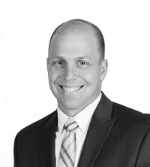Wednesday September 7, 2016
Dave Ramsey’s Way to Find an Advisor Broken
 Dave Ramsey’s decision to eliminate his Endorsed Local Provider (ELP) program for financial advisors in exchange for his newly-branded SmartVestor Pro program was touted as a move to further and better serve investors nationwide. In my opinion, it’s a veiled ploy to significantly increase revenues for the Dave Ramsey empire with little regard for investors themselves.
Dave Ramsey’s decision to eliminate his Endorsed Local Provider (ELP) program for financial advisors in exchange for his newly-branded SmartVestor Pro program was touted as a move to further and better serve investors nationwide. In my opinion, it’s a veiled ploy to significantly increase revenues for the Dave Ramsey empire with little regard for investors themselves.
In the interest of full disclosure, I was an avid ELP for Dave Ramsey for a number of years prior to this change. I fully supported his no-nonsense approach to financial juris prudence and was all-in on helping as many folks as came my way through the program. Admittedly, there were some things that Dave repeatedly said on his broadly admired radio show that made me, a seasoned and credentialed advisor cringe.
But I digress.
Ramsey’s new SmartVestor Pro program expands local providers in his network in most markets from roughly 4-10. Prior to this change, a typical ELP was compensating the Ramsey group roughly $500-$1450 per month for this program, generating the Ramsey organization somewhere between $1500-$4350 per month per metro region depending on the size. Their new program will generate their organization roughly $7000 per region per month. Larger regions, such as Minneapolis, have now been divided into 2 regions, hence doubling the Ramsey take to upwards of $14000 per month from that region alone. In short, Ramsey’s Christian impetus of “helping as many people as possible” has changed to helping his bottom line as much as possible.
Prior to this change, becoming an ELP was a rigorous process, and I am personally aware of at least one advisor who spent more than five years going through the process to become an ELP. In the last 30 days, Ramsey added several hundred ELPs to their organization; do you think their vetting process is going to be as thorough? Do you think the quality of their new advisors is going to be even close to what it was previously?
I went on the SmartVestor website and searched my zip code 53533 and 8 out of the 10 advisors listed work for a proprietary company offering limited products. This in turn means limited options available to the consumer
In the future, should you seek out an advisor, whether affiliated with Dave Ramsey’s organization or not, I strongly suggest you ask that advisor a lot of pointed and tough questions:
* How long have you been an endorsed provider?
* How did you become an endorsed provider?
* What standard do you work under: Fiduciary or Suitability?
* Are you a CERTIFIED FINANCIAL PLANNER™?
* What is your investment philosophy?
* What are your credentials that make you qualified to manage my life savings?
* How many clients do you have?
* What is your retention rate?
* Can I see a copy of your U4 (a broker’s disciplinary history)?
* Do you think you would be a good adviser to me? Why?
If you sense that the advisor is anything less than top-shelf, you have every right to walk away and look for someone in whom you have total confidence.
Feel free to reach out to me should you have any questions.
Harry Hellen, CFP®
HH Financial Planning Group


